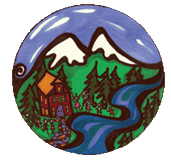The Role of the Adult in a Montessori Classroom
These are excerpts from teacher training notes from Gina Tzizik and Misse Carolan. Gina is a fellow Montessori educator, an artist, and a dear, dear friend of Misse’s.
This “Montessori Minute” was shared with the BOD of MMCH at the February 2022 meeting.
“You can do Montessori with a bucket of dirt, sticks, and stones when the teacher is centered.”
As an adult in a Montessori classroom, we wear many different hats.
There are many different pieces involved in being the adult in the classroom:
Safety
As the adult in the classroom, our first and foremost job is to keep the children safe. Not only in a physical manner, but as well as emotionally, mentally, and spiritually.
Physical
Design and implement regular fire drills and specialty drills, such as natural disasters, weather, floods, etc.
Have plans set in place for manmade disasters, such as an active shooter, shelter in place, unauthorized pick up, etc.
Design the classroom environment for freedom of movement and freedom for undisturbed work.
Emotional
Establish trust between the adult and the child
Mental Health
Create a rich environment of values and learning
Spiritual
Teach and encourage the expression of values, self-esteem, and respect.
“The purpose of observation is to guide the child.”
OBSERVATION
Observation is the foundation of Dr. Montessori’s philosophy. We are an invaluable observer and recorder of each child’s development and the classroom activities. When we are in the classroom observing it is important to be in the moment and non-judgmental. This is easily interrupted by our adult responsibilities. Our observations help us to be present to the child and to gain an intimacy with both the person and his development. In this way, we gain information about the child. This is often important insight to share with parents.
Some things the adult in the classroom can record:
Work progress, activities they enjoy or don’t enjoy
Personality traits shown at school
Developmental milestones (children sometimes spend more waking hours with us and consequently, we may be witness to milestones to share).
Who they spend their time with
Transcribe a conversation
How they conveys thoughts about their family
How they resolve conflict
Their kindness/helps another
Participation at circle & in group settings
Care of pets, plants, and their environment
Eating habits
Artwork
PREPAREDNESS / MODELING
Andrew Kutt, a fellow Montessorian, once said, “We are also the child’s role model. As educators, we need to work on our own self-esteem everyday in order to do our work.” The well being of the teacher is paramount to being a role model of self-esteem. Within your school community define self-esteem: self positive qualities. The development of a child’s self-esteem is extremely important to their total development. They need to have a healthy supply of confidence to get through the day.
Social-emotional learning, gracefulness, gentleness, kindness & citizenship are key things to model for ourselves and the children. We can facilitate conflict resolution and problem solving, we can encourage and assist them, and support and nurture them. As Dr. Ursula Thrush said, “To serve the child there has to be a transformation of the adult; we have to remove our ego. To reach Montessori’s ultimate goal of a peaceful world community, we have to start with respecting ourselves and finding our own inner peace.”
“There is an importance to spend as much time preparing my spirit as preparing the environment.”
TEAMWORK & SUPPORT
Working together as a team and supporting your fellow staff members makes for a working environment where you can thrive. Though conflicts within a group are inevitable; good communication aides in creating open and honest rapport among staff members.
“Teamwork makes the dream work!” - The students of MMCH :)
